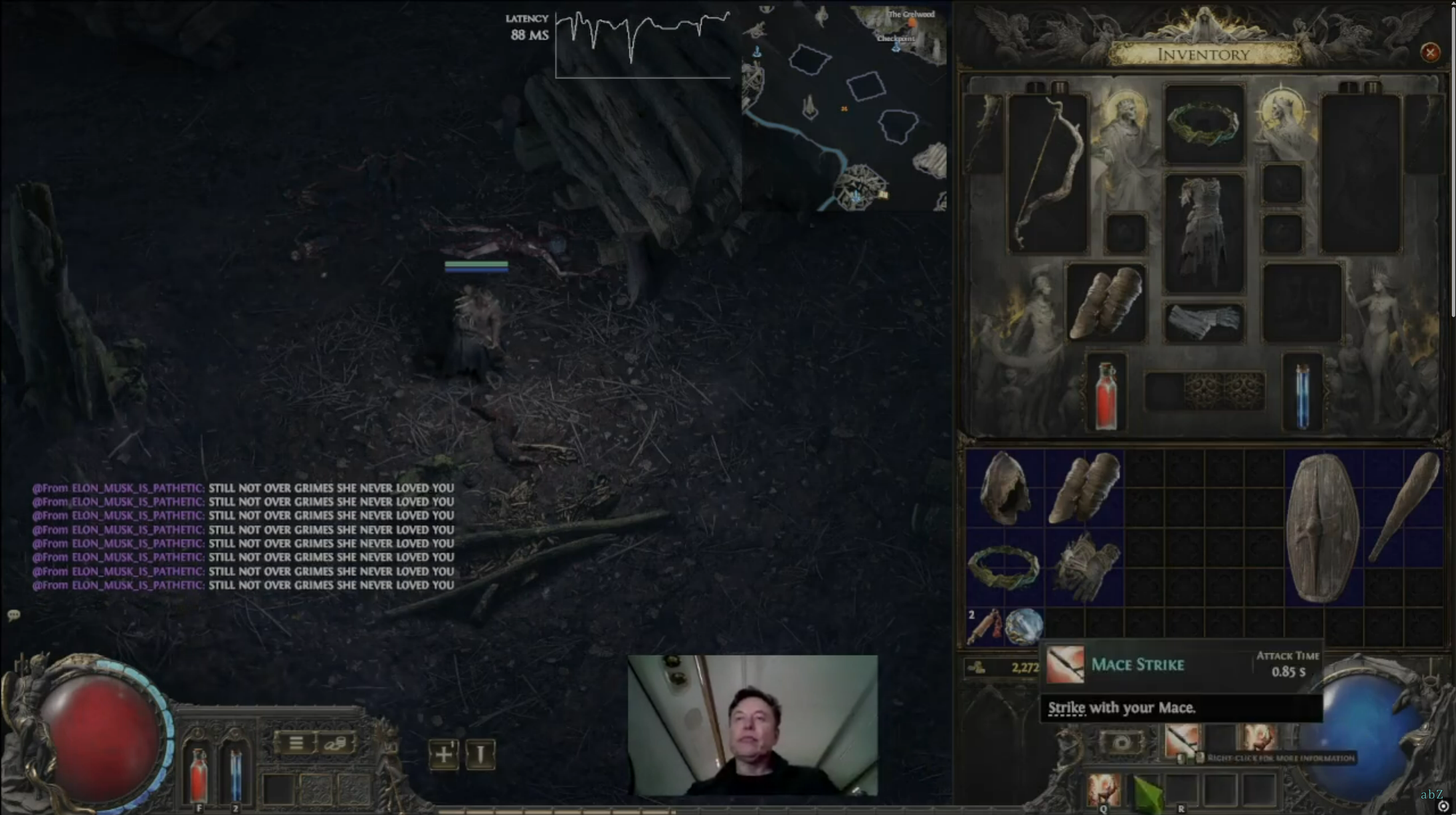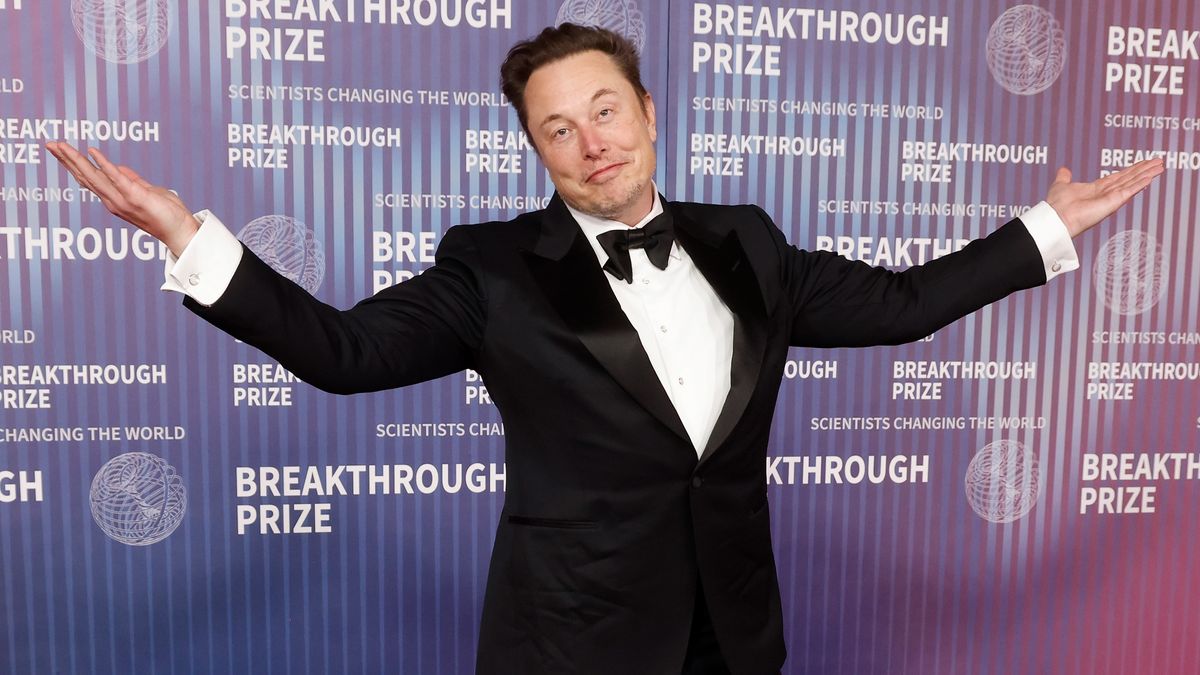Elon Musk’s ambition knows no bounds—whether it’s launching rockets into orbit or muscling into the realm of online gaming. But on a recent Saturday livestream, the world’s richest man was dragged down from orbit and straight into the brutal, unforgiving pit of gamer ridicule.
Broadcasting his attempt at playing Path of Exile 2 from aboard his private jet, Musk quickly became the main character—not for his skills, but for how epically he failed in front of a live, mocking audience.
What was meant to be a casual livestream and a slick PR move—a real-time “airborne continuity test” of SpaceX’s Starlink capabilities—spiraled into an embarrassing public disaster. And in typical Musk fashion, it didn’t go down quietly.
Musk’s choice of game, Path of Exile 2, a notoriously complex and challenging action RPG, is a title that demands strategic thinking, fast reflexes, and a deep understanding of its intricate character systems. None of which Musk displayed during the stream.
After dying multiple times to the game’s very first boss, Musk rage quit just 30 minutes in.

But it wasn’t just the gameplay that tanked. The chat was a digital coliseum, and the billionaire was thrown in like a clueless gladiator. The insults flew fast, merciless, and personal. Musk was accused of having “NO FRIENDS” and being doomed to “DIE ALONE.” Other players didn’t hold back, branding him “DUMB AND UGLY” in front of a global audience.
Then came the real sting—a comment referencing his estranged daughter, Vivian Wilson. One viewer quipped that “Vivian was right” for claiming Musk was terrible at Overwatch, another competitive game. That dig was more than a random insult.
It was a reminder of a painful, very public family rift, now weaponized by the gaming community.
Musk’s fall from grace in the gaming world didn’t start with this livestream. Earlier this year, a strange and deeply Musk-ian scandal came to light: the billionaire had been secretly paying elite Path of Exile 2 players to build high-level characters on his account. The goal? To create the illusion that he was an accomplished gamer.
He eventually admitted to the ploy, but the damage was done. The community’s trust shattered, replaced with disdain. For many gamers, the livestream was an opportunity for collective vengeance, and they seized it with full force.

As Musk sat quietly, visibly rattled by the onslaught, his typical bravado was nowhere to be seen. Unlike his usual Twitter clapbacks or trolling persona, here he was subdued—perhaps overwhelmed. Still, his silence didn’t last.
In one particularly grim moment, Musk lashed out with a slur targeting intellectually disabled individuals. “There’s a lot of r*tards in the chat,” he muttered. A vile choice of words—and one he’s used before, signaling an alarming comfort with derogatory language.
The outburst, rather than gaining him sympathy or sparking backlash toward the chat, only deepened the community’s rejection. In a space where streamers are expected to engage their audience with humility and respect, Musk came off like a bitter amateur who couldn’t take the heat.
Viewers urged him to activate the game’s “Do Not Disturb” function or simply hide the chat. But Musk either didn’t know how or stubbornly refused. Whether it was out of ignorance or pride, the result was the same: a continued public beating, with every insult adding another dent to his already crumbling image in the gamer world.

He could’ve logged off. He could’ve disabled chat. He could’ve ignored the haters. But instead, Musk sat there, letting it all pour in. It was the digital equivalent of walking through a battlefield in a tuxedo and wondering why people are aiming at you.
Musk’s foray into gaming might have once seemed like a charming curiosity—proof that even titans of industry enjoy a little screen time. But now, it’s something else entirely: a public exile. The gaming community, famously allergic to pretension and deception, has largely rejected him.
Once caught cheating and now seen as unable to take criticism, Musk is viewed as a poser rather than a peer.
Gamers don’t want billionaires buying their way into leaderboards. They value the grind, the learning curve, the hours poured into mastering systems and surviving boss battles. Musk, with all his resources and none of the humility, represented everything they loathe.
The ridicule Musk faced isn’t just about games. It’s also the culmination of growing animosity toward him in online spaces. Whether it’s his controversial political opinions, his chaotic handling of X (formerly Twitter), or his self-proclaimed mission to “streamline” the U.S. government with his Department of Government Efficiency—Musk has made enemies across every aisle.
In the eyes of many gamers, he’s not the underdog tech genius anymore. He’s the power-drunk tycoon stomping into their domain expecting praise. And the moment he faltered, they were ready.

It’s strange to think that a man who builds rockets, owns massive tech companies, and leads the EV revolution would be brought low by a boss fight in Path of Exile 2. But that’s exactly what happened.
This wasn’t about gaming. This was about a cultural rejection. A moment where the underdogs got to punch up—and didn’t hold back.
Musk entered the gaming world thinking it would be fun. Maybe he imagined himself as a lovable rogue, a billionaire nerd among fellow nerds. But instead, he found himself rejected, ridiculed, and rid of any illusion that money could buy respect in the world of gamers.
Elon Musk’s livestream was supposed to be a tech flex, a moment to show off Starlink’s stability even while jet-setting. Instead, it became a crash course in online humility. Faced with unforgiving bosses in Path of Exile 2 and an even more unforgiving audience, Musk learned that not even the richest man alive is safe from being “ganked” by the internet.
And for once, the internet didn’t flinch. They saw the man, not the myth. And they laughed.